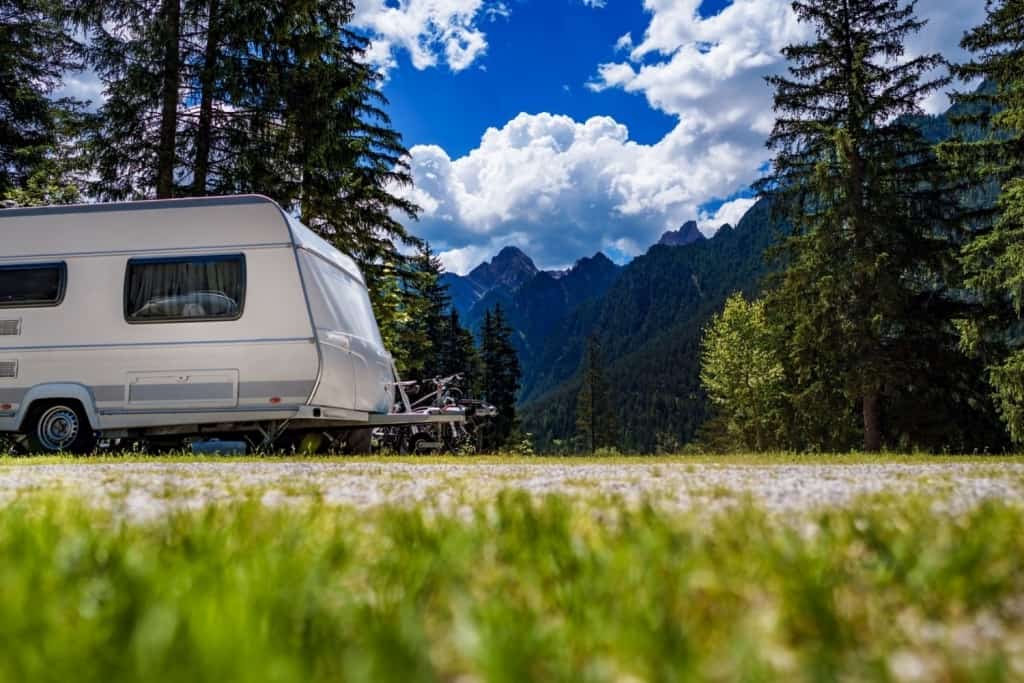Touring Caravan Insurance: Who Needs It and Why?
A touring caravan is, for many people, a significant and personal investment. Do you need a touring caravan insurance? Find out in this article.
It is, of course, a legal necessity to have your tow car fully insured, but your caravan itself will not be covered under your regular car insurance.

When you’re out on the open road in your touring caravan in any season, the last thing you want to worry about is an accident or theft. That’s where touring caravan insurance comes in – it can give you peace of mind while you travel, knowing that you’re covered if something goes wrong.
If you’re considering hiring a touring caravan for your next vacation, it’s essential to understand the nuances of touring caravan insurance and why it’s vital for your protection on the road.
But who needs touring caravan insurance, and why? In this guide, we’ll take a look at the different types of caravan insurance and explain why it’s such an important purchase.
Disclaimer: As an affiliate partner we might earn from qualifying purchases – any links on this page that go to A-plan or Caravan Guard will earn us a commission if you make a purchase. This is at no additional cost to you. Read our full disclosure here.
Do You Legally Need Touring Caravan Insurance?
Although it is not a legal requirement to have separate touring caravan insurance, by not covering yourself, you run the risk of paying a significant amount if your caravan were to be, for example, damaged, stolen or involved in an accident.
Therefore, for an investment as large as a touring caravan, it is strongly advised to be on the safe side by purchasing insurance coverage. It is an expense that could prevent considerable costs further down the road.
What Are The Different Types Of Touring Caravan Insurance?
Most touring caravan insurance providers offer two main types of cover:
“New for old” cover
New for old cover means that if your touring caravan is stolen or damaged beyond economic repair, you will be provided with a brand new one of the same or equivalent specification.
The benefit of this type of cover is that you won’t have to negotiate a deal for a new caravan. However, new for old cover typically carries a higher premium cost than market value cover (explained below).
Additionally, with a new for old replacement policy, it’s likely that this premium will increase annually due to inflation. Unfortunately, the customer bears the burden of this continually increasing price, as their new or equivalent replacement may cost more than their original touring caravan.
Therefore, it is essential to check the insured value remains enough to buy a new and equivalent caravan.
Market Value Cover
Under a market value insurance cover, you will be paid the equivalent of your touring caravan’s resale or retail value. The insurance company will likely base this figure as stated in Glass’s Caravan Guide.
A market value return cover is comparable to that of regular car insurance. A similar process and value would be paid out if your car were to be written off.
Which Policy Should I Go With?
If you’ve customised your touring caravan with an ideal layout and modifications, a new-for-old policy is likely best suited for you. If anything were to happen to your perfect caravan, it would be fully covered by your insurance policy.
What’s more, you’d save yourself the hassle of purchasing a new caravan, which may not meet the exact specifications of your original one.
For all other scenarios, the lower premium of a market value settlement will likely be your best option.
What Does Touring Caravan Insurance Cover?
Touring caravan insurance covers do differ depending on the policy provider. However, common items covered amongst large insurers such as Caravanguard and A-plan include:
- Damage to the caravan itself
- Fixed kitchen equipment such as fridges, freezers and cookers
- Caravan equipment includes things such as Aquarolls and security devices and any items used solely in the caravan, such as televisions or radios.
- ‘Personal possessions’- However, these may already be covered by your household policy, so you should check this to avoid paying for the same cover twice.
What Does Touring Caravan Insurance Not Cover?

The majority of touring caravan insurance providers will tend not to cover high-risk items, such as:
- Laptops
- Tablets and e-readers
- MP3 players
- Fishing equipment
- Pedal or electric cycles
How Much Does Touring Caravan Insurance Cost?
Various factors can affect your touring caravan insurance premium cost. Three of them may include:
The Type Of Insurance Cover
The cost of your premium will be heavily dictated by your choice of a new-for-old replacement policy or market value payout.
As discussed above, a new for old replacement tends to carry a higher premium because it costs more to replace a customised caravan and its modifications.
A market payout value carries a lower premium, but you risk losing money if the market value of your touring caravan is less than when you bought it.
Where Your Touring Caravan Is Kept
Every caravan insurance company will want to know where you keep your touring caravan whilst it’s not in use. The two most common places people store them are in a dedicated caravan storage yard or on their driveway at home.
If Your Touring Caravan Is Fitted With A Tracker
A caravan tracker operates in a similar way to an alarm system. If a touring caravan is moved whilst its alarm is activated, the owner can be made aware of it via their phone, text or email.
Many trackers can also be linked and monitored by a third-party service, which can contact the police directly if the tracker records unusual activity.
If an approved tracker is fitted to your caravan, insurance companies are likely to offer a considerable discount on your cover premium. This is because your caravan could be recovered in the situation of theft, meaning your insurance company would likely only have to pay for a partial loss claim, as opposed to a total loss claim.
However, fitting a tracker to your touring caravan does come at a reasonable cost. Tracking companies typically charge between £100 – £150 per year, and sometimes even more, depending on what’s included in your package.
So, it is essential to evaluate if the discount the insurance company provides will be worth more than the annual cost of the tracking service. Otherwise, it may not be worth getting a tracker fitted.
What Do I Need To Get A Quote?

Getting a quote is very simple.
You can try two primarily used providers, Caravanguard and A-plan, who will be able to provide you with a quote within minutes of inputting your details.
Here are the four things most insurance companies will need from you to provide you with an estimate:
- Your personal information: name, age, employment status, etc.
- Your caravan’s details: make, model, size, and year of manufacture.
- The security of your caravan and the location of storage.
- The level of cover you want.









